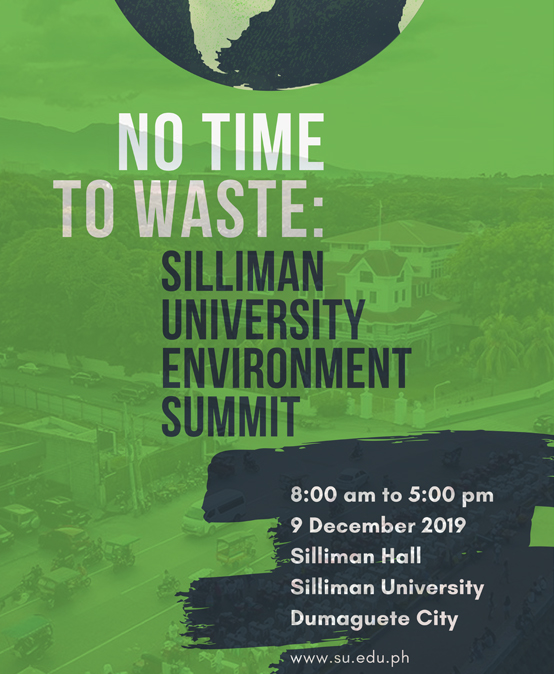
SU to hold environmental summit
Silliman University (SU) will hold its first environmental summit on Monday, December 9, at SU Hall reinforcing its commitment to the prevention of environmental pollution, conservation and enhancement of natural resources, and sustainability. This commitment is defined in the Environmental Principles, Policies, Guidelines and Best Practices that the SU Board of Trustees has adopted in full.
The “No Time to Waste: Silliman University Environmental Summit” will discuss the rationale of the university’s environmental principles and zero waste; understand the environmental policies, guidelines and best practices. The summit also aims to identify the roles and responsibilities of environmental champions; establish communication and coordination mechanism among environmental champions including the sharing of effective awareness-raising and behavior-change techniques and a waste assessment methodology.
At the end of the summit, all stakeholders are expected to develop department and unit-level plans and a comprehensive Information, Education and Communication (IEC) campaign.
The environmental champions are the key contacts for environmental –related advocacies within their departments, units or organizations. They are also tasked to monitor and evaluate environmental-related performance and compliance with the “Environmental Principles, Policies and Guidelines” in their departments, units or organizations.
The champions will also assist in environmental awareness-raising and develop or update specific plans of departments, units or organizations through consultations with the faculty, students and staff. They will submit their plans and periodic reports to the Pollution Control Officer and to the Zero Waste/Waste Management Committee.
SU president Betty Cernol-McCann earlier disclosed that one immediate focus of the University is to improve on-campus waste management.
“The practice of proper waste management in the University shall be effective immediately,” said Dr. McCann. “Henceforth, all trash cans will be properly labeled and faculty, staff, and students will be asked to segregate waste accordingly. Waste Management Committee members and volunteers will visit each building to label bins and provide instructions on segregation.” All biodegradable wastes from the campus, she said, will be composted with the assistance of the College of Agriculture.
The blueprint for action was developed by a team led by Dr. Jorge Emmanuel, Adjunct Professor at the Institute of Environmental and Marine Sciences (IEMS) and a Balik Scientist under the Department of Science and Technology (DOST).


